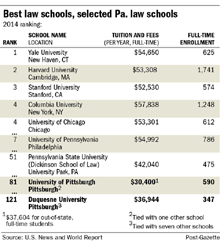***
Months after the launch of legalized retail marijuana in Colorado, the state is still trying to better regulate the drug and close the loopholes.
Gov. John Hickenlooper, as part of that effort, just signed a new law calling for uniform packaging of edible marijuana. In an effort to make those products less attractive or accessible to kids, they will have to be sold in opaque, childproof packaging.
State Rep. Daniel Kagan, who co-sponsored the legislative fixes, explained: "We identified these problems and we sought to tighten it up, to make sure that marijuana is really kept for adult use and kept away from under-aged persons and especially from toddlers."
Kagan added, "We do it differently in Colorado. Everybody came together on this."
Children's Hospital, based in Aurora, has weighed in on the legislative efforts -- reporting an increase in emergency room visits and patient admissions from accidental exposure.
Dr. Sam Wang, pediatric emergency physician, said symptoms range from basic sleepiness to more severe cases, where children have not been able to breathe properly and required breathing tubes. "As recreational marijuana goes forward, it's obviously going to increase availability and potentially increase unintentional exposures as well," Wang said.
Other fixes signed by the governor on Monday include giving authority to pot shops to confiscate forms of identification, if they have reason to believe someone underaged is using a fake ID. Another measure calls for local jurisdictions to submit fingerprints to the Colorado Bureau of Investigation (CBI) for the purpose of conducting fingerprint-based criminal record checks on people working in marijuana businesses.
State Sen. Linda Newell, a Democratic co-sponsor, acknowledged their work is not done. "We will probably find these clean-up bills as we go through the years after marijuana, both medical marijuana as well as recreational marijuana, has become a norm in Colorado," she said.
The issue of stoned drivers is another trouble spot for state lawmakers. At a laboratory certified to test blood samples for marijuana, the director told Fox News there is not a roadside test, such as a breathalyzer, in the foreseeable future for determining if a driver is under the influence of cannabis.
"One person may have a very high THC concentration in their blood, particularly medical marijuana users, and they're not affected. Where someone who has never smoked marijuana before, will have a much lower concentration and be very affected," said Dr. Robert Lantz, of Rocky Mountain Instrumental Laboratories.
According to state Marijuana Enforcement Division Public Information Officer Julie Postlethwait, Colorado has issued licenses to hundreds of vendors, including:
-- 183 retail stores
-- 238 retail cultivation facilities
-- 44 product manufacturers (i.e., edibles)
-- 4 testing facilities (for product potency and contaminants)
Dozens more are pending with the state in these categories. For those with state licenses in hand, they may not be open yet because they have to obtain paperwork at the local level, too.
Local permission can be thorny because Amendment 64, the state constitutional amendment which legalized recreational pot, left it up to municipalities in the Centennial State to decide whether to allow marijuana businesses within their borders.
Dale Dyke and Chastity Osborn, a husband-and-wife team who converted their home into a bed and breakfast, complained that the "laws are very gray." Their business Get High Getaways was catering to marijuana tourists until the City of Lakewood ordered them to shut down the overnight stays. One complication is that while Colorado legalized recreational pot, the state left it illegal to use the drug outside in public or in traditional hotel rooms. For now, the couple is maintaining their location as a car service while working with investors to purchase a new location.
Recently, a marijuana job fair in Denver drew thousands of people with lines stretching a few blocks long. It has been referred to in local media reports as a "green rush."
Visitors told Fox News they're moving to the state in hopes of finding jobs in the marijuana business. Shane Wylie and Matthew Bean are among them. They drove 1,300 miles from Louisiana, just in time for the fair.
"This is our life-changing experience, this is our big step and career change," Wylie explained. Bean added, "I want to start from the bottom, so I can learn everything."
***
This Evan Granowitz blog site contains news and updates in and out of the legal arena.
